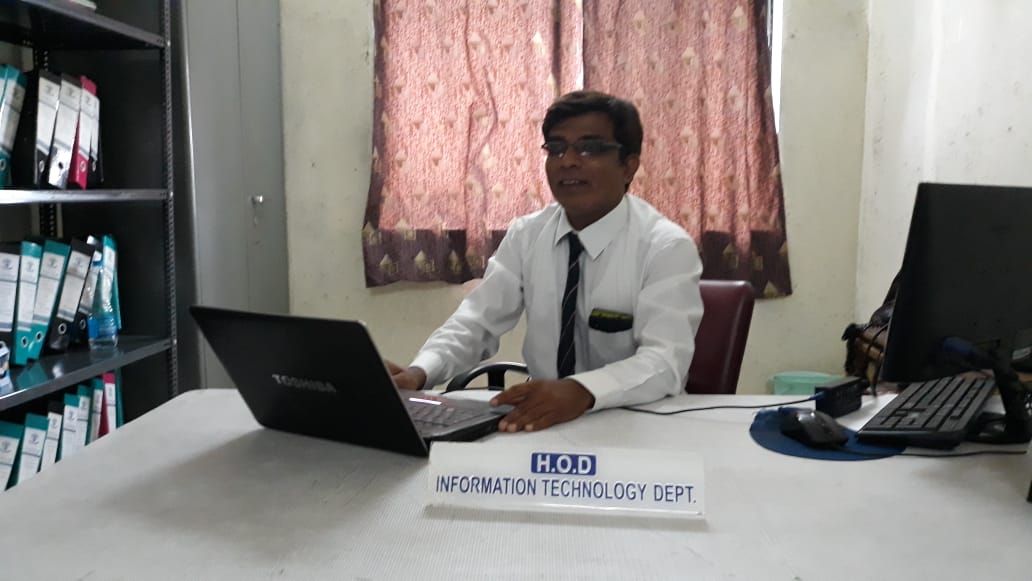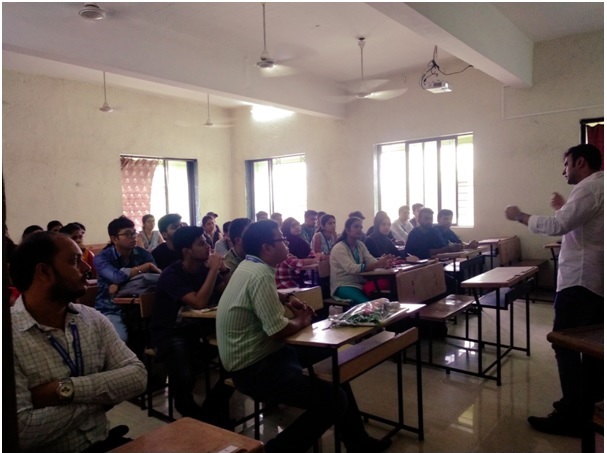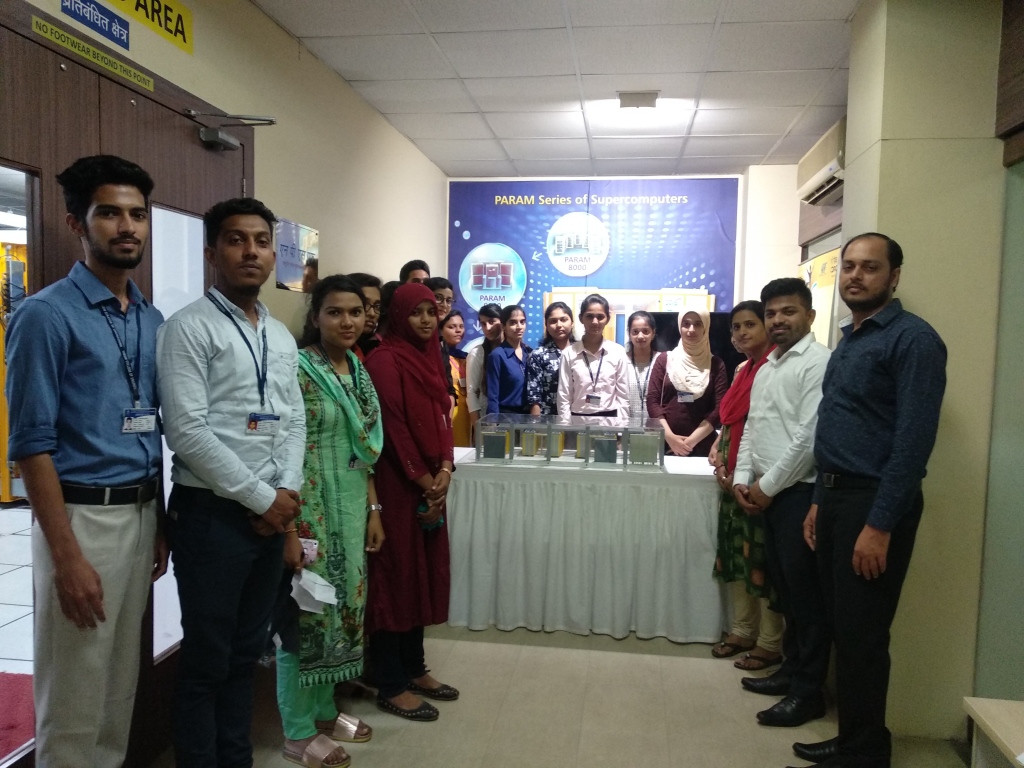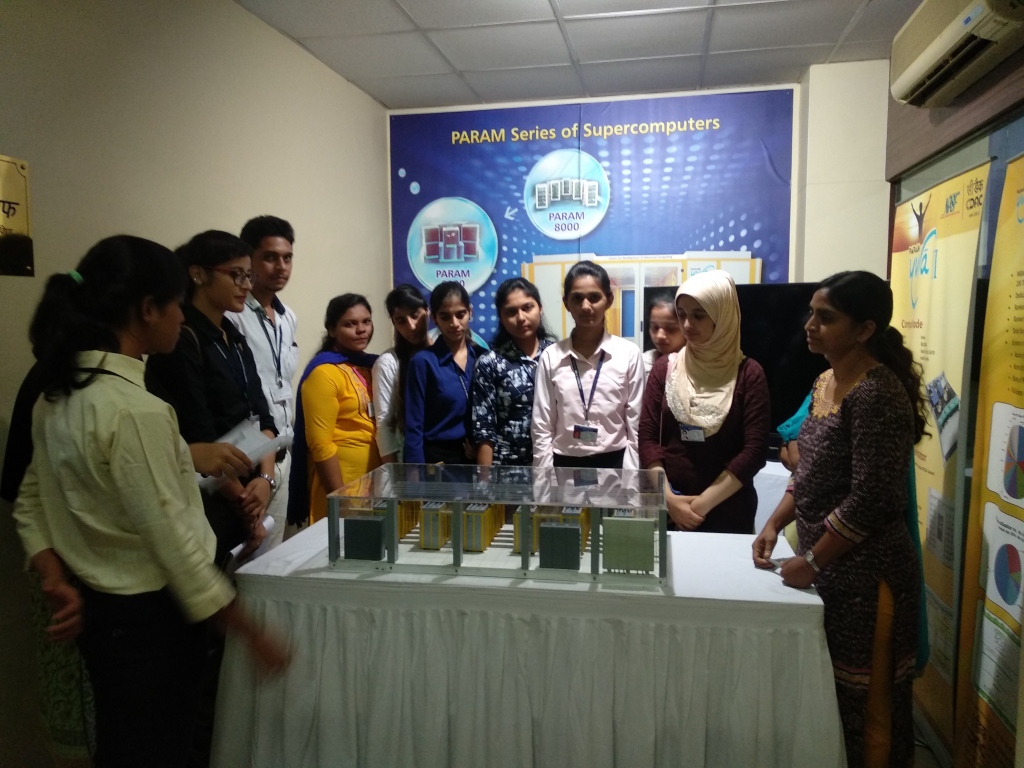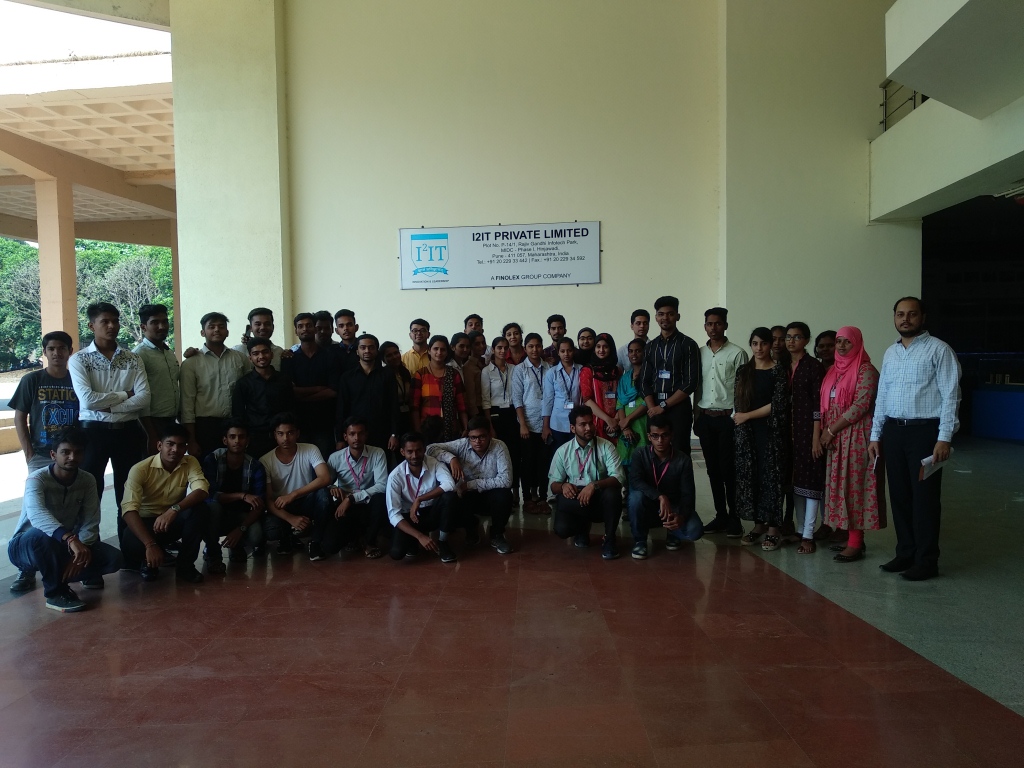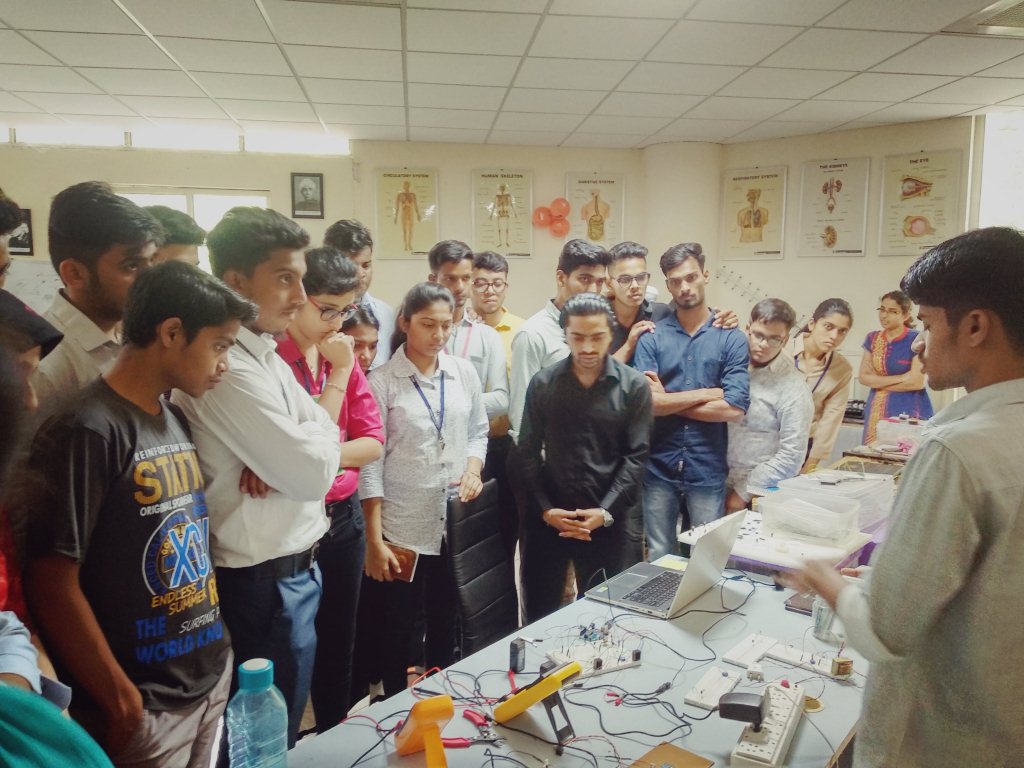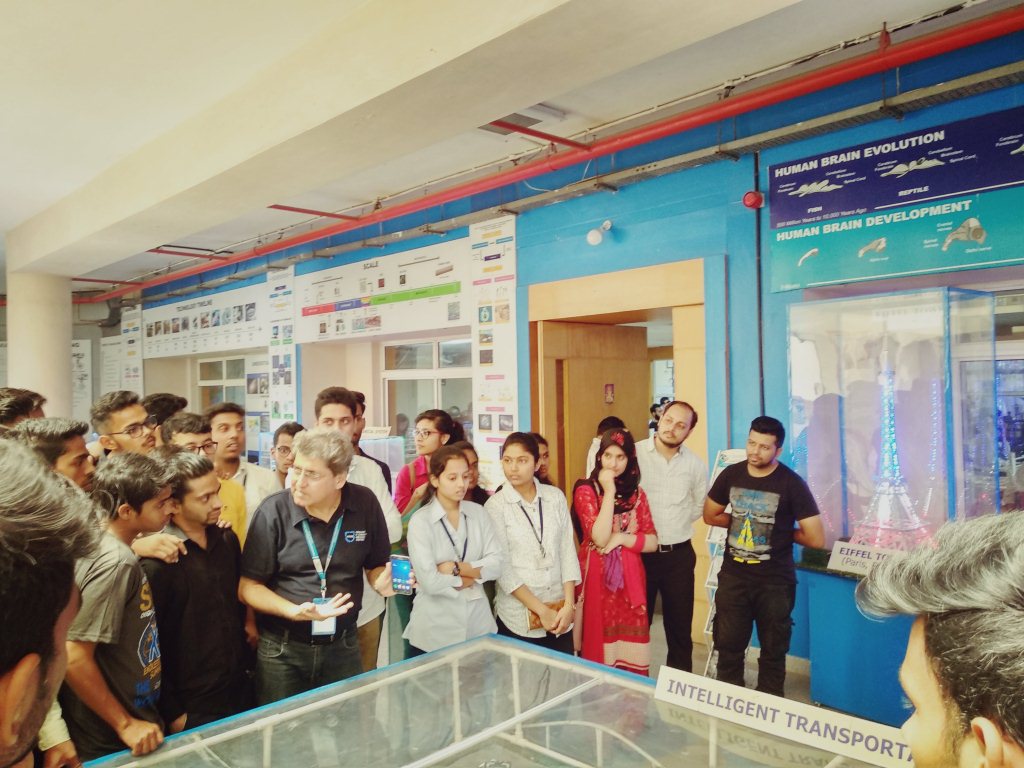| Sem 3 | Applied Mathematics III | Understand complex variable theory, application of harmonic conjugate to get orthogonal
trajectories and analytic function. |
Plot the image of the curve by a complex transformation from z-plane to w-plane. |
Expand the periodic function by using Fourier series and complex form of Fourier series lema?s |
Understand the concept of Laplace transform and inverse Laplace transform of various functions and its application to solve ordinary differential equations. |
Apply the concept of Z- transformation and its inverse of the given sequence. |
Apply the concept of Correlation and Regression to the engineering problems. |
|
|
|
| |
|
|
|
|
|
|
|
|
Object Oriented Programming Methodolgy | Understand features and concepts of object oriented programming. |
Solve various computational problems using constructs such as if-else. |
Understand the concepts of classes and objects in detail. |
Understand the importance of interfaces and classes. |
Understand the use of multithreading,packages,lists and wrapper classes. |
Handle exceptions and program applets. |
|
|
|
Data Structures | Study different data structures. |
Implement different operations on stack and queue. |
Implement different operations on Link list. |
Implement different operations on trees. |
Handle different traversal techniques using graph. |
Select appropriate sorting techniques for a given problem. |
Select appropriate searching techniques for a given problem. |
|
|
Digital Logic Design and Analysis | Understand different number systems and their conversions |
Analyze and minimize Boolean expressions. |
Design and analyze combinational circuits. |
Design and analyze sequential circuits |
understand the basic concepts of VHDL. |
study basics of TTL and CMOS Logic families. |
|
|
|
Discrete Structures | reason logically. |
understand use of functions, graphs and trees in programming applications. |
understand use of groups and codes in Encoding-Decoding.. |
express recursive functions of other subjects like Data Structures as recurrence relation. |
|
|
|
|
|
Electronic Circuits and Communication Fundamentals | understand the use of semiconductor devices in circuits and modify it as per requirement |
understand the significance of power amplifiers in day to day applications along with the importance of oscillators. |
understand the basic concepts of operational amplifier along with its application. |
understand the fundamentals of electronic communication and its application. |
apply knowledge of electronic devices and circuits to communication applications. |
study basic concepts of information theory. |
|
|
|
| Sem 4 | Applied Mathematics IV | |
|
|
|
|
|
|
|
|
| |
|
|
|
|
|
|
|
|
Analysis of Algorithms | calculate time complexity and space complexity of an algorithm |
analyze different divide and conquer problems |
analyze different greedy method problems. |
analyze different dynamic programming problems |
analyze different backtracking problems |
analyze different string matching algorithms. |
select appropriate problem solving strategies |
|
|
Computer Organization and Architecture | understand basic structure of computer. |
perform computer arithmetic operations. |
Ability to understand control unit operations. |
design memory organization that uses banks for different word size operations. |
understand the concept of cache mapping techniques. |
understand the concept of I/O organization. |
conceptualize instruction level parallelism. |
|
|
Data Base Management systems | have the ability to reason logically. |
understand use of functions, graphs and trees in programming applications. |
understand use of groups and codes in Encoding-Decoding.. |
express recursive functions of other subjects like Data Structures as recurrence relation. |
get the idea of ACID properties used in transaction. They will get to understand the concept of deadlock handling and how it should be prevented or detected. |
get the idea of various techniques used for query optimization. |
|
|
|
Theoretical Computer Science | Get a conceptual understanding of the fundamentals of alphabets ,grammer languages. |
Develop an understanding of different types of turing machines and their applications. |
Classify and differentiate between the power and limitations of theoretical models of computations. |
Grasp the design of basic machines,regular expressions,deterministic and non deterministic machines. |
Understand the various problems including the halting problems and undecidability. |
Compare different types of languages and machines. |
|
|
|
Computer Graphics | Understood basic concepts of computer graphics |
Acquired knowledge about drawing basic shapes such as lines, circle ellipse. |
Got basic knowledge of windowing and clipping. |
Acquired knowledge about Illumination Models and Surface Rendering |
Learnt about processing of basic shapes by various processing algorithms. |
Acquired knowledge about Color Models |
|
|
|
| Sem 5 | Microprocessor | Understand Processor Architecture. |
Create assembly language and mixed language programs for 8086 based system. |
Design system using memory chips and peripheral chips for 8086 microprocessor |
Illustrate techniques to improve performance of microprocessors. |
Distinguish between RISC and CISC |
|
|
|
|
| |
|
|
|
|
|
|
|
|
Operating Systems | Understand basic knowledge, functions and services of Operating system as system software |
Design functions and services and learn various scheduling algorithms. |
Identify the role of process synchronization towards increasing throughput of the system |
Solve the deadlock problems, resource allocation and apply various techniques. |
Analyze study and implementation of memory, I/O and file management. |
Recognize the various data structures used by different OS like Unix Linux and
Windows 7 |
|
|
|
Structured and Object Oriented Analysis and
Design | understand and apply Techniques to get the System Requirements. |
understand and present System Requirement in standard format |
understand and Analyse Feasibility for System Requirements. |
understand and Model different System Requirements. |
design different Databases required for various Systems as per the needs of an Organisations. |
get the idea of various UML Diagrams. |
|
|
|
Computer Networks | develop an understanding of computer network, protocol, topology and the concept of OSI layers. |
conceptual understanding of the guided and unguided media. |
understand Flow control, error control, framing With the aloha and CSMA. |
understand the concept of Iv4 and IPv6 addresses, subletting with the routing algorithm. |
understand the concept of socket programming with the congestion control. |
understand the concept application layer services and SNMP. |
|
|
|
Web Technologies | Understand Processor Architecture. |
Create assembly language and mixed language programs for 8086 based system. |
Design system using memory chips and peripheral chips for 8086 microprocessor |
Illustrate techniques to improve performance of microprocessors. |
Distinguish between RISC and CISC |
|
|
|
|
| Sem 6 | System Programming and Compiler Construction | Understand system program and application program. |
Learn the basics of assembler,compiler loader and macroprocessor. |
Understand different types of software tools. |
Study different phases of compiler. |
Implement different types of parsers. |
Apply different code optimization and generation techniques on given code. |
|
|
|
Software Engineering | get a conceptual understanding of the Software engineering, Software processing models and Metrics |
develop an understanding of different types of Cost estimation Models and the software scheduling and Planning |
develop and understanding of Risk management and software configuration management with version and change control |
grasp the design of software and understand the concept of software architecture and user interface design with Software quality assurance and quality metrics |
understand the concept of Black box, white box and oo testing. |
understand the concept of software maintenance and reverse engineering with web engineering and TDD process |
|
|
|
Distributed Databases | get the idea of distributed database systems, issues in designing,and architectures of DDB |
get the idea about fragmentation, allocation and various transparencies in Distributed Database design |
get an idea of transaction management, concurrency control and various algorithms for concurrency control in distributed database. |
understand Deadlock detection techniques, prevention, and avoidance and recovery protocols in distributed database systems. |
get acquainted with phases of distributed query processing and global query optimization algorithms. |
get an idea of Heterogeneous database architecture and various issues in heterogeneous databases. |
execute Xquery on XML database file and get idea about various applications of XML in distributed database systems. |
|
|
Mobile Communication and Computing | Understand GSM and CDMA cellular architecture |
Design and configure wireless access points |
Use network simulator tool to simulate mobile network. |
Implement small android based application. |
Understand basics of wireless local area networks |
Solve security issues in mobile computing. |
|
|
|
Project Management | Define characteristics of a project |
Conceptualize IT project management |
Study and describe risk in environment and the management challenges for effective project management. |
Apply the project management principles across all phases of a project |
Implement different phases of IT projects. |
Demonstrate use of tools and techniques for the management of a project plan, monitor and controlling a project schedule and budget, tracking project progress. |
|
|
|
| Sem 7 | Digital Signal Processing | Understand the concept of Discrete time Signal and perform signal manipulation. |
Perform classification of DT System and will be able to understand concept of IIR and FIR System. |
Evaluate DFT and analyze the properties of DFT. |
Calculate DFT using FFT Flowgraph. |
Understand Fast DFT Algorithms. |
Understand the concept of DSP Processor and real time DSP Applications. |
|
|
|
| |
|
|
|
|
|
|
|
|
Cryptography and System Security | understand a variety of generic security threats and vulnerabilities, identify and analyze particular security problems for a given application |
understand the principles and practices of basic and advanced cryptographic techniques and its classifications. |
understand the various symmetric key cryptographic techniques, their design and modes of operations along with their applications. |
understand the various public key cryptographic techniques, their design and modes of operations along with their applications. |
distinguish between their original data and any modified or corrupted data during transmission through a network using Cryptographic hash functions. |
understand the various publicly available authentication protocols and their real time applications. |
create an awareness among themselves about individual and organizational security while communicating within or outside a network with the help of firewalls, IDS, passwords, etc. |
|
|
Artificial Intelligence | develop a basic understanding of AI building blocks presented in intelligent agents |
Understand working of different types of agents and environments. |
Solve problems using different search strategies and reasoning and apply different learning algorithms to solve problems |
Infer and explain knowledge and reasoning in uncertain domain and different methods of learning. |
Develop a plan for a given search problem to design and develop the AI applications |
Evaluate applications of expert system and NLP. |
|
|
|
Software Architecture | Understand the architectural concepts ,importance and role of software architecture |
Recognize major software architectural styles, design patterns and framework |
Analyze Components and different types of Connectors ,their role in software architecture |
Understand the modeling techniques and types of analysis for a problem and selection among them |
Implement software architecture using different frameworks |
Design software architecture for non-functional and domain specific software systems |
|
|
|
| Sem 8 | Data Warehouse and Mining | Get an idea of designing data warehouse for a given organization |
Extract meaningful data from large database |
Understand the concepts of applying and implementing algorithms |
Identify which algorithm to use for efficient results |
Learn various data mining techniques |
Implement algorithms for decision making strategies |
|
|
|
Human Machine Interaction | Knowledge of basic building blocks of human machine interaction |
design user centric interfaces. |
design innovative and user friendly interfaces. |
apply HMI in their day-to-day activities. |
criticize existing interface designs, and improve them. |
Design application for social and technical task. |
|
|
|
Parallel and distributed Systems | Apply the principles and concept in analyzing and designing the parallel and distributed system |
Gain knowledge on the challenges and opportunities faced by parallel and distributed systems. |
Understand the middleware technologies that support distributed applications such as RPC, RMI and object based middleware. |
Improve the performance and reliability of distributed and parallel programs. |
Study the concepts of resource and process management. |
|
|
|
|
Digital Forensic | understand the basic definitions and focus on the procedures for identification, preservation and extraction of electronic evidences and the evidence gathering methodology |
focus on the auditing and investigation of network and host based evidences. |
analyze and document the information gathered and prepare a testimonial evidence and also analyze the challenges in evidence handling. |
experience a hands-on environment of forensic tools and resources. |
understand the various system requirements for system administrators and forensic analystsand also understand the process of forensic duplication. |
differentiate between the various possible attacks on a host or network based device and how to investigate such a live system and the various laws against cyber-crime. |
|
|
|
